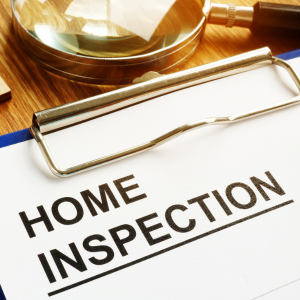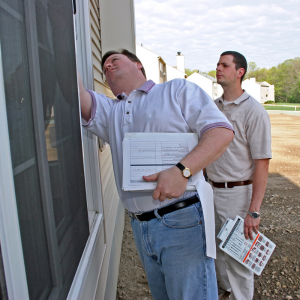
Who Pays for the Appraisal in Texas Real Estate Transactions?
Understanding Appraisal Costs in Texas
In Texas real estate transactions, an appraisal helps find a property’s market value. A professional appraiser visits the home and gives mortgage lenders a clear assessment. The appraisal cost can change based on:
- How big and where the property is
- How detailed the appraisal needs to be
- How many appraisals are needed at that time
Knowing these costs ahead of time helps both the buyer and the seller get ready.
Buyer vs. Seller: Who Typically Pays?
Most of the time, the buyer pays for the appraisal. Here’s why:

- Purchase Agreements: Many agreements say buyers must pay the appraisal fees.
- Mortgage Lenders’ Requirements: Since mortgage lenders ask for an appraisal to give a loan, buyers pay to make sure the house is worth it.
Sometimes, sellers might agree to pay some or all of the fees to close the deal.
Negotiating Appraisal Fees
Deciding who pays the appraisal fees can be important. Here are some tips for talking about payment:
- Discuss with Your Realtor: Realtors can explain what usually happens in your area and help talk to the other side.
- Consider Sharing Costs: Sometimes, both sides can split the appraisal costs.
- Review the Purchase Agreement: Make sure it says who pays for the appraisal so there are no mix-ups.
Both buyers and sellers should talk openly and get advice from their real estate professionals. This way, they can settle these costs well. Working with Ready House Buyer can make this process easier and clearer.
Home Inspections in Texas: Understanding Costs and Responsibilities
Typical Home Inspection Costs in Texas
When buying a home, a home inspection is important. In Texas, the cost of home inspections can change due to several reasons. Most times, you will pay between $300 and $500. However, this fee might increase if the home is big or old. Here’s what affects the pricing:
- Size of the Home: Bigger homes take more time to inspect.
- Location: Cities may have higher fees than countryside areas.
- Inspector’s Experience: Skilled inspectors may charge more but give better insights.
Knowing these factors helps you budget well for your Texas inspection.
What a Home Inspection Covers

A good home inspection checks many parts of a house. Texas inspections look at key areas to ensure the home is safe and solid. This is what is usually checked:
- Structural Components: Walls, roof, foundation, and other structures.
- Plumbing Systems: Pipes, water heaters, and fixtures.
- Heating and Cooling: Checks if the HVAC systems work right.
- Electrical Systems: Wiring and outlets are checked for safety.
- Interior and Exterior Conditions: Windows, doors, and general wear.
These checks help spot issues before you buy a home.
Negotiating Inspection Costs and Repairs
After getting a home inspection report, talking about costs and repairs is part of buying a home. Here are ways to handle negotiating inspection costs and repairs:
- Understand the Report: Look at the findings to see how serious the problems are.
- Negotiate on Price: Use inspection costs to ask for a lower price if there are big repairs.
- Request Repairs: Ask the seller to fix specific issues before closing.
- Get Estimates: Get quotes for needed repairs to use in talks.
- Adjust Agreements: Change the buying deal based on agreed repairs or price changes.
These tips help make the transaction smooth for both sides.
At Ready House Buyer, we focus on honesty and fairness in every real estate deal. If you have questions or need more help, reach out for information.
Appraisal and Inspection in Texas: A Complete Guide
The Appraisal Process in Texas Real Estate
A lot of people in Texas use appraisals when they buy or sell a home. They help decide how much a house is worth on the market. The appraisal value is what mortgage lenders use to decide if the house is worth the loan amount. How it works:
- Appraisers: Appraisers are licensed professionals who give fair estimates of how much a property is worth.
- Appraisal Value: How much is the property worth? This is based on its state, location, and other homes that have recently sold nearby.
- Market Value: To find this, appraisers look at how much other things have sold for recently.
- Mortgage Lenders: Mortgage lenders use the appraisal to make sure they are giving out safe loans.
Appraisals are used by both buyers and lenders to see if the sale price is fair for the property.
The Home Inspection Process: Step-by-Step

Home inspections help people who want to buy a house find out what kind of shape it is in. This is what happens:
- Scheduling: Buyers make an appointment with a certified home inspector.
- Inspection Day: The inspector looks at different parts of the house, such as any structural problems.
- Checklist: Roofing, plumbing, and electrical systems are on a list that they follow.
- Findings: The inspector writes down any issues and repairs that need to be done.
- Addressing Issues: Buyers can use the report to ask the seller to fix things.
They should be there to ask questions and find out more about the house during the inspection.
Legal Considerations and Requirements
In Texas, there are rules about how to buy a house. Know this:
- Licensing and Certification: Texas has rules about licenses that appraisers and inspectors must follow.
- Consumer Protection: Texas laws are meant to keep buyers safe and make sure they understand all the facts.
- Real Estate Professional: A good expert can help you understand the rules and details of the contract.
- Disclosure and Compliance: When buyers and sellers share information about a property, they must follow state rules.
This is what the Texas Real Estate Commission (TREC) does to make sure that the real estate process is fair.
Navigating Appraisal and Inspection Contingencies in Texas
Appraisal Contingency Explained
People who want to buy homes in Texas have a safety net called an appraisal contingency. It’s better if the house is worth less than what was paid for it. Lenders want to see an appraisal of the house to make sure the loan amount is fair and close to how much the house is worth on the market.
- Market Value Evaluation: The report looks at the home’s condition and how it stacks up against other homes that are similar. This helps us figure out how much the house is really worth.
- Texas Appraisal Process: An appraisal looks at where the house is, how big it is, and how good it is.
- Appraisal Costs: How much does an appraisal cost? The buyer usually pays for the report that is needed to move the deal forward.
Inspection Contingency Explained

With a home inspection contingency, buyers can see if there are any problems with a house before they buy it. In Texas real estate deals, this step is very important.
- Inspection Process: A home inspector checks out a house to see if it needs any repairs or has any other problems that might lower its value.
- Negotiating Repairs: A home inspector checks out a house to see if it needs any repairs or has any other problems that might lower its value.
- Texas Inspection Requirements: In Texas, inspections give buyers a detailed report on the condition of the house, which helps them make smart decisions.
Your money is safe, and repairs are done before the closing if you have an inspection contingency.
Strategies for a Smooth Transaction
People who are buying or selling real estate need to plan ahead if they want the deal to go smoothly.
- Planning and Negotiation: Both sides need to know what they agree to and be ready to talk about making changes.
- Role of Real Estate Professional: An experienced real estate professional helps buyers and sellers talk to each other clearly and build trust.
- Working with Mortgage Lenders: Keeping mortgage lenders updated during the deal helps match financing with appraisal and inspection results.
- Building Trust: Trust and openness are key, as they help create a cooperative setting for successful deals.
By using these strategies, buyers and sellers can aim for a successful and worry-free real estate experience.
Protecting Yourself: Tips for Appraisal and Inspections in Texas
Choosing Qualified Professionals
When you buy a house, it’s important to get the right people to do the inspections and appraisals. Pick a home inspector who is licensed and has a lot of experience. Make sure they have the Texas licenses you need.
- Home Inspection: The person who inspects your home should be licensed and have a lot of experience. For Texas, make sure they have the right licenses.
- Appraiser: The person who inspects your home should be licensed and have a lot of experience. For Texas, make sure they have the right licenses.
- Real Estate Professional: A trustworthy real estate professional can help buyers with the process. They should have a good track record and be able to suggest other qualified professionals.
Understanding and Interpreting Reports

At the end of inspections and appraisals, you get reports with important information. Knowing about these papers helps you make smart decisions.
- Inspection Process: This looks at the house’s condition and makes a list of repairs that need to be done. Look for clear records of everything that was found.
- Appraisal Value: The report on the appraisal shows how much the house is worth on the market. The price is being checked without bias to see if it is fair.
- Evaluating Reports: Carefully read the reports. To fully understand the evaluation, ask questions if something isn’t clear.
Addressing Issues and Disputes
There are times when problems arise after inspections and appraisals. Being able to fix these problems helps people come to an agreement.
- Repairs and Concerns: If the house needs repairs, talk to the seller about them. You might have to talk about who will fix things.
- Disputes: People can disagree about the results. To fix things and get through problems, use good strategies.
- Agreements: Try to find a way out of the problem that makes both parties happy. It might mean making some concessions.
If you need further assistance, you can contact Ready House Buyer for professional help with your home in Texas.
FAQs:
Who typically pays for appraisals and inspections in Texas?
Most of the time, buyers in Texas pay for home inspections and appraisals. However, buyers can sometimes get the seller to pay some of the costs.
Are appraisals and inspections required for refinancing in Texas?
Yes, lenders usually need an appraisal to say how much the home is worth before they will lend money on it. There’s no need for an inspection, but it might be a good idea.
How does location affect appraisal and inspection costs in Texas?
Prices vary by city. For instance, because of how the markets are set up in each city, prices may not be the same in Houston and Frisco.
What should a buyer know when purchasing a home in Texas regarding inspections?
When buyers get inspections, they should make sure that important things like plumbing and structure are checked. This will help you stay out of trouble later.
Can appraisal fees impact the final home price in Texas?
There are separate fees for appraisals, but if the appraisal is lower than the sale price, the price may need to be renegotiated or changed.
How do environmentally friendly upgrades affect appraisals in Texas?
Many buyers prefer eco-friendly homes, so adding eco-friendly features can raise their value.
Is a waiver possible for inspections in Texas home purchases?
That’s possible, but it’s not a good idea. It’s important to know what repairs might be needed, no matter how much they cost.
What’s the role of a home inspector in Texas?
Home inspectors look at the house and let buyers know what repairs need to be done. This helps buyers make smart decisions.
What is the difference between an appraisal and a home inspection?
An appraisal tells lenders how much the home is worth on the market, while a home inspection tells buyers how well the house is in general.
Who regulates appraisers and inspectors in Texas?
They are regulated by the Texas Real Estate Commission (TREC), which makes sure they follow state laws.
How long does a typical home inspection take?
Based on the size and condition of the home, most inspections take a few hours.
Key Insights
- Knowing who pays for appraisal and inspection in Texas is important for both buyers and sellers.
- In Texas, the buyer usually pays for the home appraisal to find out the property’s market value.
- The cost of a home inspection is often talked about between the buyer and seller, but buyers usually pay to check the home’s condition.
- Homebuyers need to know what appraisers and inspectors do to avoid surprise costs.
- Negotiating fees for appraisal and inspection can change how much buying a home costs.
- The appraisal shows the property’s market value, affecting loan decisions.
- A good home inspection helps buyers spot repair needs and ensures the house is what they expect before buying it.
- Licensed inspectors are essential for doing fair checks on plumbing, structure, and heating.
- Knowing the costs of appraisal and inspection fees helps in planning how much money you’ll need when buying a home.
- Results from appraisal and inspection affect deal terms like price talks and necessary repairs.
- Realtors often help their clients through the steps of appraisal and inspection and explain who does what.
- Resources like Bankrate and Fastexpert can give more information on costs in Texas.
- Talk to your mortgage lender to learn how fees may change based on their rules.
- The Texas Real Estate Commission (TREC) makes sure home inspectors are certified to protect consumers.
- Buyers should learn about inspection standards for peace of mind.
- Areas like Frisco or Gregg County might handle these services differently, which can change local real estate deals.
- Sometimes, sellers pay for the appraisal or inspection to help speed up the sale.
- Making sure buyers feel confident means fixing any issues found in inspection reports.
- Lenders often require appraisals, and it’s important for buyers to know these costs can be part of closing costs.
- Keeping up with blogs and articles helps you stay updated on current trends and pricing in the Texas market.
- Both buyers and sellers gain from understanding the standards set by the appraisal institute for property evaluations.
- Complete home appraisals help ensure fair pricing, protecting investments for both parties in the deal.
These findings apply throughout Texas, including Dallas, Fort Worth, Houston, San Antonio, Austin, El Paso, and the surrounding areas. For further assistance, please contact us at (214) 225-3038. For additional information, please visit Ready House Buyer.


